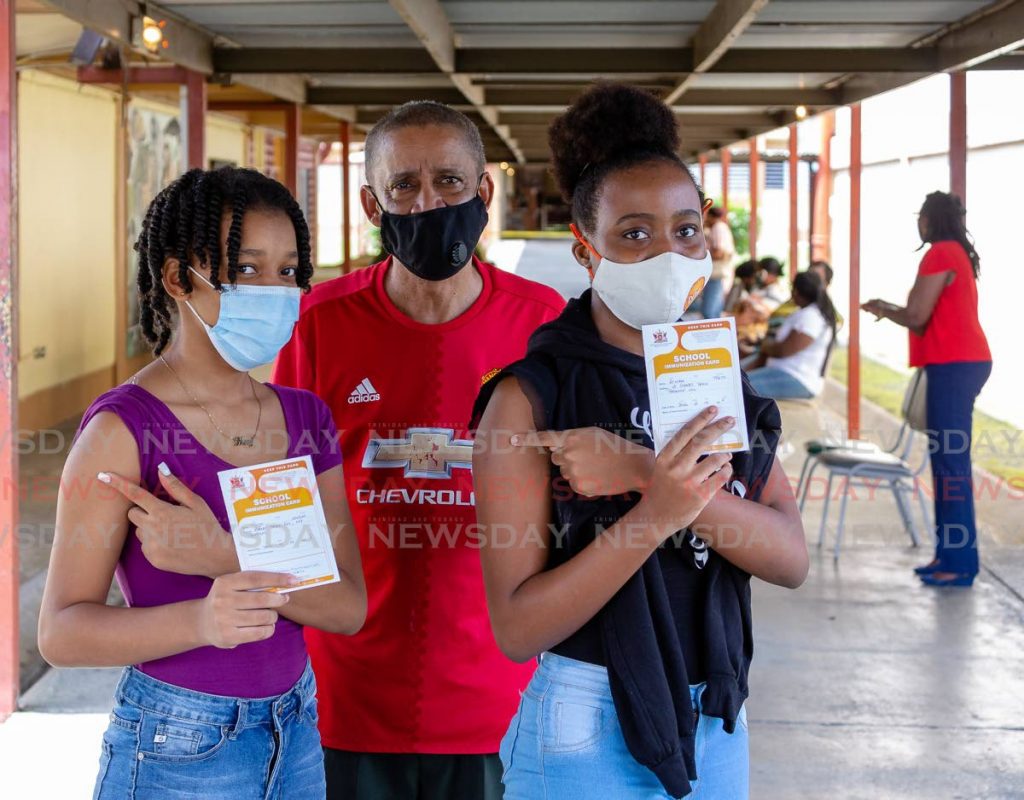Ensure momentum for children's vaccinations

Vaccination of children between 12 and 17 got off to a robust start in Trinidad on Wednesday, with 3,702 first doses administered despite heavy rain.
The drive-through facility at the Chaguaramas Heliport also reported steady patronage, but a good response in the first days of vaccination, particularly for a dose that targets a sector of the population that was previously unable to access it, was to be expected. It’s similar to what happened when the first vaccines that arrived in the country were made available to adults.
Government ministers also sensibly led by example, with both Education Minister Nyan Gadsby-Dolly and Minister in the Ministry of Education Lisa Morris-Julian bringing their children for their Pfizer doses.
That solidarity with sense has only stirred greater resistance and even resentment among local anti-vaxxers: Ms Morris-Julian was chided for allowing her children to be “lab rats” after her social media post about her choice.
While children have statistically been spared the worst of covid19 infection, those historical numbers won't continue in the face of more contagious variants, as is already being seen in other countries.
Any sick child, when it can be avoided, is one too many.
The Pfizer vaccine, which is being allocated exclusively to teens for the present, is being administered at multiple sites in Trinidad and more sites are planned to meet what is clearly anticipated to be rising demand.
But to make sure of this, the government effort to encourage vaccination of the young must match the voices that work to stymie widespread vaccination. The low numbers of people of any age coming to get the vaccine in Tobago are particularly alarming.
Vaccine hesitancy in a home is a social issue that can only be changed through engagement and education.
In the US, a Kaiser Family Foundation survey found that only a third of parents planned to vaccinate their children right away.
While the leadership of the Education Ministry set a valuable example, it is far from enough. To make effective use of the Pfizer vaccines, there needs to be more peer motivation and example by relatable public figures and clearer, prompt responses to concerns raised by civil society.
To change the conversation about teen vaccination, 17-year-old US student Kelly Danielpour created the website vaxteen.org in 2020 to share information calibrated to answer her peers' questions and alleviate their concerns.
To be vaccine-hesitant today is to wilfully ignore the evidence of the approximately 43,000 people in this country who have been infected, the 1,215 who have died to date and the 318 who are sick enough to need hospital care.
Too often, the government's response to anti-vaxxers has been exasperation and annoyance, but an effective response must be guided by patience, clarity and continued, extended and improved outreach.


Comments
"Ensure momentum for children's vaccinations"